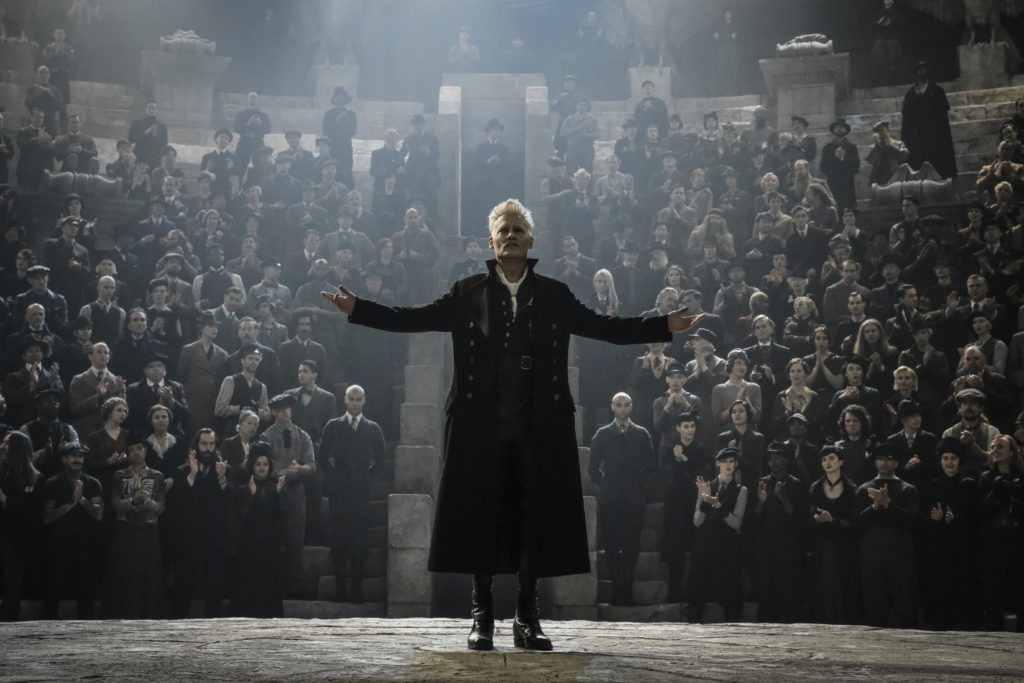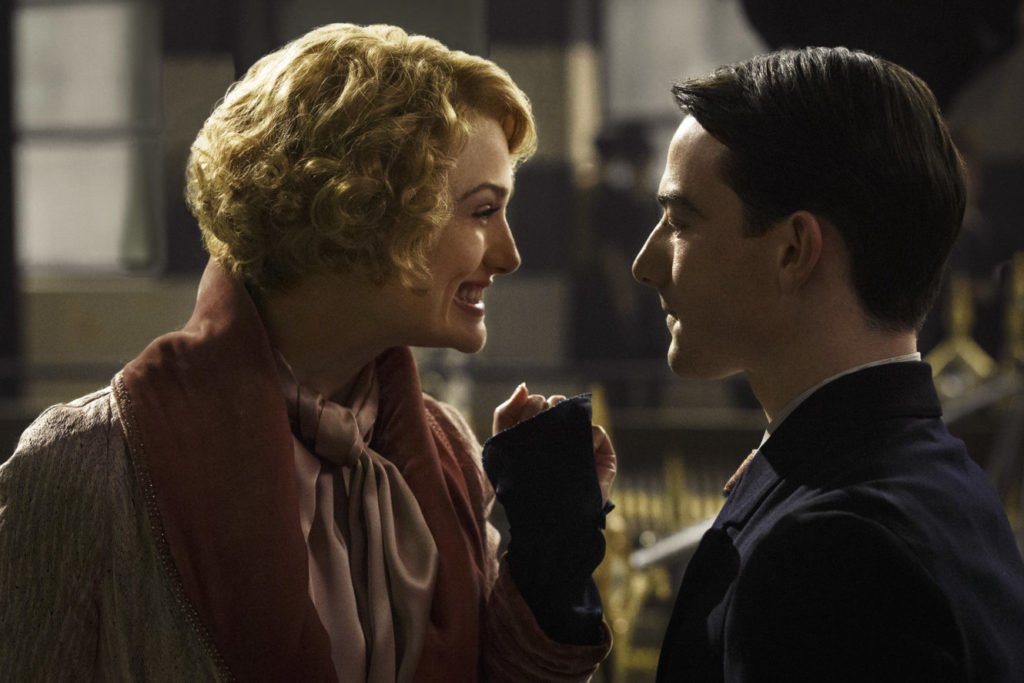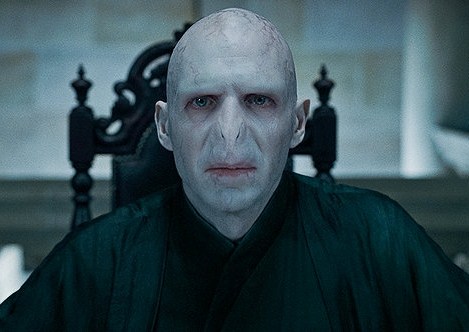How Grindelwald’s Persuasiveness Is More Powerful Than Any Magic He Could Do

With the release of Fantastic Beasts: The Crimes of Grindelwald, it’s hard to ignore the glaringly obvious comparisons between Gellert Grindelwald and Adolf Hitler (or even Joseph Stalin). Through the second installment of the Fantastic Beasts series, we get more of a realistic insight into racism in the 1900s, both in the wizarding world and in ours.
The movie quickly begins with a jaw-dropping surprise: Abernathy, introduced to us in Fantastic Beasts and Where to Find Them, has joined Grindelwald’s fight. I know, I know, he doesn’t really scream “sharpest tool in the shed,” but the fact that someone working for MACUSA – even if they are a career politician – was so quickly turned is shocking, to say the least. Right from the get-go, we see a powerful consequence of government corruption. With Abernathy’s assistance, Gellert Grindelwald disinterestedly murders those transporting him to the Ministry of Magic – and even the creature that helped make it possible – and once again becomes a “free” man.

In current times, it’s easy for us to sit back and recognize that racism (even “wizard racism”) is just plain wrong. Just like many are unable to recognize red flags when they’re in a relationship, Crimes of Grindelwald shows us that seemingly good, competent people were often persuaded into joining the fight “for the greater good” despite how evil and corrupt we know Grindelwald and other legitimate historical leaders were. When Queenie is alone on the street in Paris, she is approached by Vinda Rosier (yeah, that Rosier) and is offered tea, attention, and understanding. As soon as Grindelwald enters and Queenie realizes who he is, she is fearful and angry. With just a few smooth lines, however, Grindelwald is able to appeal to Queenie’s current struggles – her desire to marry No-Maj Jacob and the illegality of it in her society. Before you can say “babbling bumbling band of baboons” five times fast, Queenie is one of them. Queenie, our sweet, fearless, feminine hero, was so easily corrupted. If someone like Queenie can be turned in the blink of an eye, I shudder to think of what might’ve happened to me in her position.
In Crimes of Grindelwald, we witness a rally of Grindelwald supporters firsthand. Gellert Grindelwald strategically boasts claims of how he is less violent than the Ministry of Magic – which is obviously debatable because we previously saw his followers kill an entire family (including a child) just to use their house as headquarters – and tricks an Auror into killing a young woman in front of the entire crowd, providing evidence for his statement. It is at this moment that we truly understand how intelligent and charismatic Grindelwald is and how dangerous that can be for those who aren’t sure of what side of the fight they’re supposed to be on. As the woman lies motionless, Grindelwald instructs his followers to Disapparate and share what they just witnessed.

In Harry Potter, Voldemort is often referred to as one of – if not the – most dangerous and Dark wizards of all time. In my opinion, Crimes of Grindelwald quickly shoots this down. It’s no contest when comparing the Dark Lord to Grindelwald. We never see much of how Voldemort recruited followers, and it’s often implied that many of the Death Eaters simply learned their racist views from their ancestors. I’d argue that Voldemort already had a great – terrible, but great – foundation to build upon. Many years earlier, Gellert Grindelwald recruited people who never would’ve imagined themselves being on the wrong side of history, and Lord Voldemort was able to capitalize on that.
Grindelwald’s effortless silver tongue demonstrates just how dangerous leaders like Hitler and Stalin were. Where Voldemort ruled by fear and oppression, Grindelwald ruled by sympathy and empowerment. Yes, Gellert Grindelwald was a notoriously talented magician, but his persuasiveness was even more dangerous. When truly good people can be perverted, it leaves society in much worse of a position. If society is unable to decipher which side is good and which side is bad, it will result in a much more painful battle with everlasting effects. And that’s why Grindelwald is so dangerous: He inserts himself into a position of trust over his followers, and he is truly a master of manipulation.

